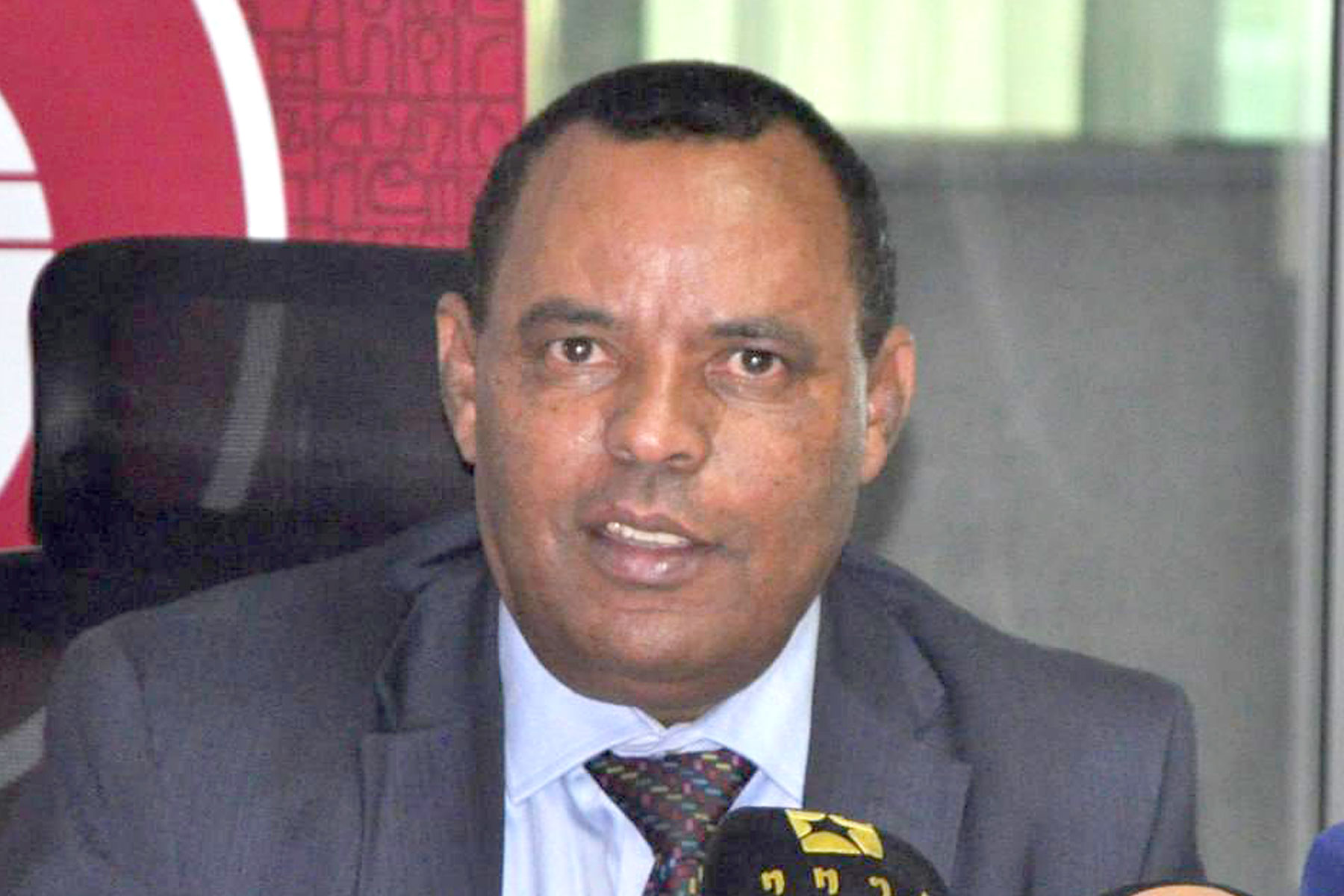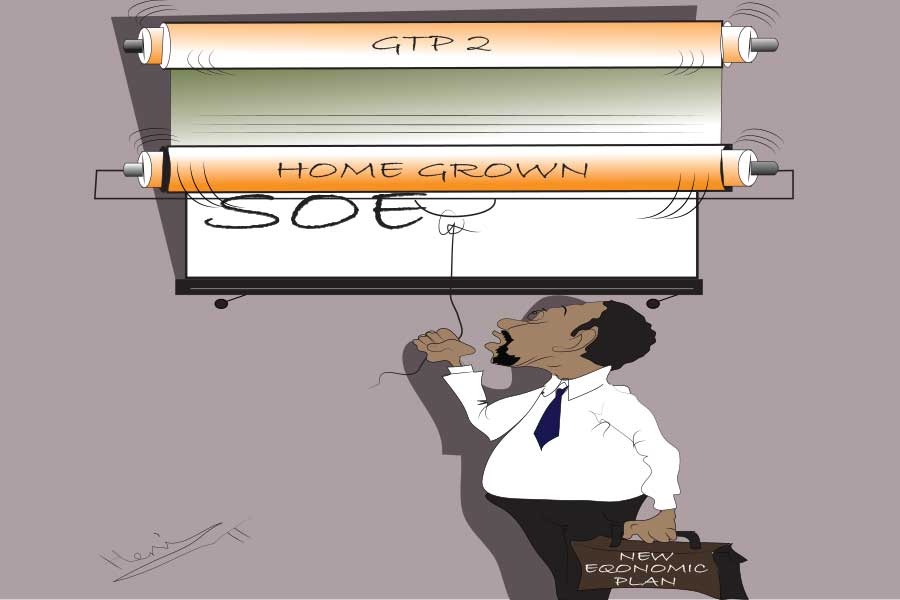
Apr 1 , 2023
By Fisseha Mekuria (PhD)
The winds of change are blowing in Ethiopia, carrying with them the hopes and dreams of a new generation eager to shape the future of their country and the African continent. We must focus on nurturing and supporting young innovators in science and technology to harness this potential, argues Fisseha Mekuria, a professor at the faculty of Technology & Society, Malmö University, Sweden. He may be reached at fisseha.mekuria@mau.se
Recent events in Addis Abeba, where students protested, and the Bahir Dar Institute of Technology's Centre for Innovation & Entrepreneurship (BITEC) hosted the international conference on ICT for the development of Africa, highlighted the importance of supporting youth-led initiatives in science and technology. As a concerned citizen living in the diaspora, I am compelled to rally support for these innovation centres, which cultivate and empower the next generation of scientists, engineers, and entrepreneurs.
We must ask ourselves whether we should invest more in encouraging and enabling our young people to become innovators and creative designers.
Should we focus on fostering entrepreneurial skills, creativity, mentorship, and financial support for the emerging generation? Or should we stand by while misguided forces weaponize the talents of the youth, turning them against their own communities?
For emerging economies in Africa and Asia, investing in science and technological innovation is a beacon of hope for sustainable development and for creating a digital society. Equipping young talent with the necessary tools and financial support can lead to a brighter future and contribute to industrial development in these countries. The establishment of the Science Museum in Addis Abeba should serve as a testament to this belief. It is a call to action for prioritizing education, research, and innovation in science and technology.
The young innovators at BITEC inspire with their passion for addressing societal issues through science and technology. Their work demonstrates the potential for a sustainable Ethiopia and inclusive socio-economic development. One must wonder how often such innovation centres make headlines or are visited by politicians and decision-makers in Ethiopia and across Africa.
We must strive to support and encourage these innovation centres, helping them develop their products into viable startups and industries capable of creating jobs for future generations and inspiring a culture of innovation and creativity. We also hope that decision-makers, educational institutions, and leaders empower and support young people in pursuing science and technology skills to foster continuous innovation and entrepreneurship.
Ethiopia, Africa, and the world's future depend on enhancing young generations' skills in science and technology. Targeted investment in innovation and entrepreneurship centres can address the urgent issue of youth unemployment in Africa, potentially giving rise to industries based on local innovations.
By supporting such initiatives, we can prevent the exodus of talented scientists, engineers, designers, and creative artists, ensuring they remain in their home countries to contribute to sustainable economic development. By doing so, we pave the way for a sustainable and robust digital economy and address the pressing challenge of youth unemployment that afflicts many African countries.
It should be our collective responsibility to invest in and support young innovators. Using their innovative products and services as a springboard for success must be a positive first step. Both public and private institutions must commit their unwavering support to these educational and innovation centres.
Today's most pressing developmental challenge facing Africa is youth unemployment and a lack of entrepreneurship. Addressing this challenge should be prioritized within United Nations Sustainable Development Goals (UNSDGs) framework. I urge for the implementation of a plan similar to the Marshal Plan.
Now is the time to unleash Africa's young population's innovation and entrepreneurial potential through science and technology. History shows that people and countries can effectively unite to address global challenges. Ethiopia and Africa can carve an authentic and sustainable legacy if we dedicate ourselves to educating our youth in science and technology innovation, ensuring a brighter future for all.
PUBLISHED ON
Apr 01,2023 [ VOL
23 , NO
1196]


News Analysis | Apr 13,2024

Viewpoints | Jul 29,2023

Commentaries | May 21,2022

Editorial | Mar 09,2019

My Opinion | Jan 01,2022

Editorial | Sep 14,2019

Radar | Dec 19,2020

My Opinion | Oct 12,2024

My Opinion | Dec 19,2020

Commentaries | May 11,2019

My Opinion | 131665 Views | Aug 14,2021

My Opinion | 128030 Views | Aug 21,2021

My Opinion | 125993 Views | Sep 10,2021

My Opinion | 123614 Views | Aug 07,2021

Dec 22 , 2024 . By TIZITA SHEWAFERAW
Charged with transforming colossal state-owned enterprises into modern and competitiv...

Aug 18 , 2024 . By AKSAH ITALO
Although predictable Yonas Zerihun's job in the ride-hailing service is not immune to...

Jul 28 , 2024 . By TIZITA SHEWAFERAW
Unhabitual, perhaps too many, Samuel Gebreyohannes, 38, used to occasionally enjoy a couple of beers at breakfast. However, he recently swit...

Jul 13 , 2024 . By AKSAH ITALO
Investors who rely on tractors, trucks, and field vehicles for commuting, transporting commodities, and f...

Jun 28 , 2025
Meseret Damtie, the assertive auditor general, has never been shy about naming names...

Jun 21 , 2025
A well-worn adage says, “Budget is not destiny, but it is direction.” Examining t...

Jun 14 , 2025
Yet again, the Horn of Africa is bracing for trouble. A region already frayed by wars...

Jun 7 , 2025
Few promises shine brighter in Addis Abeba than the pledge of a roof for every family...

Jun 29 , 2025
Addis Abeba's first rains have coincided with a sweeping rise in private school tuition, prompting the city's education...

Jun 29 , 2025 . By BEZAWIT HULUAGER
Central Bank Governor Mamo Mihretu claimed a bold reconfiguration of monetary policy...

Jun 29 , 2025 . By BEZAWIT HULUAGER
The federal government is betting on a sweeping overhaul of the driver licensing regi...

Jun 29 , 2025 . By NAHOM AYELE
Gadaa Bank has listed 1.2 million shares on the Ethiopian Securities Exchange (ESX),...